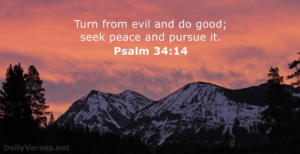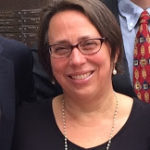
A woman I know expressed her sadness regarding the current situation in the United States. “I just don’t know how much longer this country can hold it together.”
She should know.
This woman, who I will call Anna, was 11 years old when the Bosnian war began. For six years, she witnessed the brutality of war; genocide, hunger, and terrible violence. Anna and her brother were moved several times throughout the war to keep them safe. From her Bosnian village to relatives in Serbia, and then to Croatia. Anna recalls saying good-bye to her father for the last time.
When her mother received refugee status in the USA when Anna was 15, the three of them traveled to New York where Anna began high school. She barely knew any English. Eventually, she attended college, and then, law school. As a teen, Anna felt disloyal leaving her country. She never saw her father again. She believes he spent time in a concentration camp. Anna in unclear as to all her mother experienced at the height of the war, but understands it is likely beyond comprehension.
She recently saw a friend’s Instagram post. The post was a picture of her former village in Bosnia. Her friend observed that the village now was like a ghost town. Anna believes that this is due to not just the fallout from the Bosnian war, but also due to the Russian invasion of Ukraine. She grew tearful recalling the love she felt as a child in this community before the war. Anna has memories of swimming in the nearby river on hot summer days. But then, her eyes cloud over, “this is where they threw all the bodies, you know, in the river. I couldn’t swim in it now.”
When Anna hears the current rhetoric in our country, the angry discourse, it reminds her of what happened in Bosnia. “I don’t want anyone else to go through what we went through.” She feels a profound sense of loss, recalling the village of her childhood, where her grandparents, aunts and uncles lived.
Anna contends that what saddens her the most are the school shootings. “School was my safe space. It should be for all children.” Afterall, it is where she found liberation, strength, hope, and validation of her many strengths and talents. It is where she learned English, studied biology, and excelled in math. Her ESL teacher became a lifelong mentor.
Now as an adult, Anna experiences PTSD and trauma driven depression. Despite her amazing resilience, she struggles with an eating disorder. Feeling hungry at night, you see, is terrifying for her. War, of course, leaves scars. Sometimes, I will catch a glimpse of how WWII impacted my mother. Her father was away for 4 years serving in France. There is a photograph of my grandfather returning home. Still in uniform, his children run into his outstretched arms as he kneels to enfold them. The profundity of this day, dissolving into many days of anxiety, dread of holidays, fear when unwanted memories intrude, and lasting damage to relationships.
Anna’s testimony reverberates in my bones. She shares a deep truth, her truth. But also, one that is prophetic. It is bigger than us, this turn towards darkness. This truth that Jesus knew so deeply. We humans have the capacity to cause extreme pain and generational damage. Yet, we also have the capacity for creativity, compassion, care, and love.
This is my prayer today. I know it is naïve.
May we find a deeper meaning beyond the polarization, beyond ego, beyond the violence. May we find God in one another. May we find strength and goodness in the Holy Spirit that surrounds us. May we find the courage to do what is right for the greater good, for our children and grandchildren.
As Anna reminds us, our future depends on it.

Jennifer Stuart
Jennifer Stuart is an ordained minister in the United Church of Christ. She serves as a community minister at First Church in Cambridge, MA, UCC. Jennifer, a clinical social worker specializing in psychological trauma, is a psychotherapist at the Danielsen Institute at Boston University.